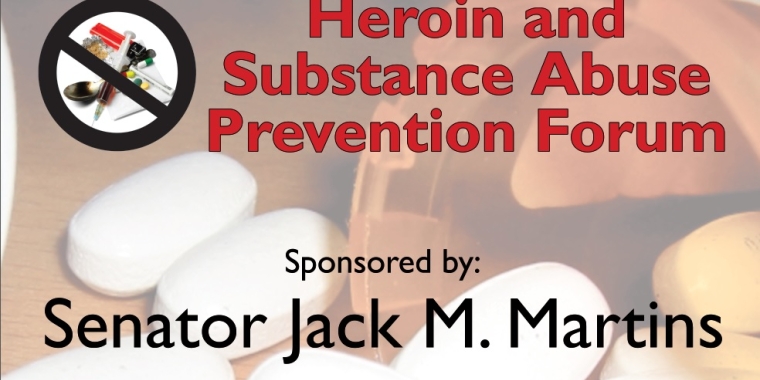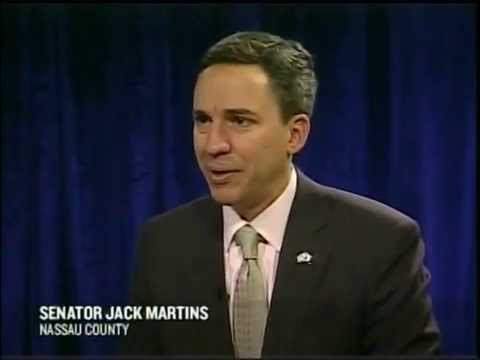From the Desk of Senator Jack M. Martins
Jack M. Martins
November 19, 2012
-
ISSUE:
- Local Government
- Electricity
-
COMMITTEE:
- Local Government
The Truth about LIPA
LIPA failed us miserably – from pre-storm preparations right through communicating when power would be restored after the storm. No arguments.
Naturally, as public servants, our job is to take public authorities like LIPA to task and take a good, hard look at why it failed us after Superstorm Sandy. But I participated in this dog and pony show last year after Hurricane Irene and frankly, it accomplished very little except some convenient transfer of blame and lots of finger pointing. One positive: it’s given me a few months to better see the bigger picture and zero in on where the real problems lie.
Of course, pick up any paper and the theories are endless: LIPA hasn’t had a permanent chief executive in two years; five spots on their board are still vacant; the trustees discussed the hurricane for only 39 seconds; they didn’t trim enough trees prior to the storm, their service maps are outdated; their wiring is antiquated; they never installed a monitoring system; their communication with customers stinks. All real issues that need to be addressed, but they’ve existed for years and remain unresolved.
So now heads will supposedly roll and an overhaul is in the works. It’s déjà-vu. LIPA was created in the 1980’s by former Governor Mario Cuomo in response to the Long Island Lighting Company’s inability to handle outages after Hurricane Gloria and the aftermath of the shuttered Shoreham Plant.
Let me be the first to tell you the ugly truth: you can swap out every executive at LIPA and name it whatever you want and when the dust settles, nothing will have been achieved if we don’t address the underlying structural issues at LIPA. Of course, some cursory procedural progress is possible but the real problem is LIPA’s ailing infrastructure and more importantly, that, given our already highest in the nation utility costs, we can’t afford to fix it. The legacy costs LIPA has carried have merely kicked the can down the road – the billions borrowed still have to be paid and that has to be factored into any future LIPA reincarnation.
Central to any fix is the fact that LIPA is in debt for an incredible $7 billion dollars and has been for more than 14 years because of losses absorbed when the Shoreham Nuclear Power Plant was closed. Consequently, there is virtually no money to invest in much-needed infrastructure upgrades as much of it goes to debt service. For those following national politics, this is a perfect example of what happens when debt gets out of control. We all wish the Shoreham debacle had never happened, but we must live with its consequences, unintended as they are. For you and I, that means the aftermath of a storm that decimates an overly fragile electric system.
Any legitimate plan to address LIPA’s problems has to start with this reality or else we’re just spinning our wheels. Thankfully this past year, Governor Cuomo had already floated the idea of an “electricity superhighway” that would deliver cheaper electricity to our region. With those realized savings, LIPA could then begin investing in infrastructure improvements without disturbing its debt reduction effort.
This storm and its aftermath taught us that our electric infrastructure is overly fragile. I know we pay some of the highest electricity rates in the nation and while it would be nice to reduce those, we must invest in hardening our infrastructure against the next Sandy or Irene.
We also have to take an honest look at alternate sources that may produce cheaper energy. Long Island is already home to New York’s largest solar farm and there’s been much-debate over wind farms off our shores. As controversial as these issues are – where they’re located and what initial investment might cost – the discussions must be had and decisions have to be made.
We know what has to be done to better LIPA and the technology is already available. The question is does Long Island, and New York State, have the wherewithal to hunker down and find a way to pay for it. No matter who is given the reins at LIPA, their challenge is to convey this predicament to the public, present a feasible plan, and finally to marshal support for the solution. Anything else is just a band-aid.
Share this Article or Press Release
Newsroom
Go to Newsroom

